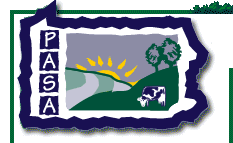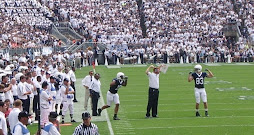The kids were tearing through the barn this morning like little maniacs. They've learned about running fast now. I have to get the video camera out. Watching them play is just great medicine to lower the blood pressure.
Speaking of good medicine...
My "Goat Mentor" Shirley, sent me an article this morning that I found fascinating. I thought someone out there might find it interesting also.
http://www.latimes.com/news/nationworld/nation/sns-ap-goat-milk-drug,0,4161415.story?track=rss
FDA weighs approval of anti-clotting drug from milk of genetically engineered goats
By RICARDO ALONSO-ZALDIVAR, Associated Press Writer 9:12 PM PST, January 7, 2009
WASHINGTON (AP) — You've heard of making cheese from goats' milk, but prescription drugs?In what would be a scientific first, an anti-clotting drug made from the milk of genetically engineered goats moved closer to government approval Wednesday after experts at the Food and Drug Administration reported that the medication works and its safety is acceptable.
Called ATryn, the drug is intended to help people with a rare hereditary disorder that makes them vulnerable to life-threatening blood clots.
Its approval would be a major step toward new kinds of medications made not from chemicals, but from living organisms genetically manipulated by scientists. Similar drugs could be available in the next few years for a range of human ailments, including hemophilia.
ATryn was developed by a Massachusetts biotechnology company, GTC Biotherapeutics, by altering the genes of goats so they would produce milk rich in antithrombin, a protein that in humans acts as a natural blood thinner.
About 1 in 5,000 people don't produce enough of the protein, putting them at risk of developing blood clots in their veins. Such clots can be extremely painful. If they break loose and travel through the bloodstream to the lungs or the brain, the consequences can be catastrophic. Pregnant women with the disorder are at high risk of miscarriage or stillbirth, because of blood clots in the placenta.
In their everyday lives, patients with antithrombin deficiency are managed with conventional blood thinners. That would not change. ATryn is for use only when patients are undergoing surgery or having a baby, times when the risk of dangerous clots is particularly high. Those patients would receive the drug by intravenous infusion for a limited time before and after their procedures.
Karen Janes of Santa Fe, N.M., whose teenage daughter Mary Karen died of a brain clot linked to the disorder, said the issue is whether the drug works, not how it is made.
"I think this goat thing is just wonderful," said Janes. "I do want this drug to go through all the rigors of testing by the FDA. But if it can work, and it can save other families from what we went through, I think that's marvelous." Her daughter died in 1998.
Scientific advisers to the FDA will weigh the risks and benefits of ATryn at a meeting Friday, and make a recommendation on approval. The FDA will make the final decision.
"It's the first time we've held an advisory committee meeting on any product from a genetically engineered animal," said FDA spokeswoman Siobhan DeLancey. If the drug is approved, the FDA may require follow-up monitoring to make sure that patients' immune systems don't start making antibodies in reaction to the medication.
"I think this is an important tipping point," said Geoffrey Cox, chairman of GTC, the drug maker. "The real dramatic thing that is happening here is that we've been able to reduce some very clever science to the practical level of producing a drug that's safe and efficacious. Those things aren't trivial.
"To make the drug, scientists at GTC put DNA for the human antithrombin protein into single cell embryos of goats. Goat embryos with the gene were then inserted into the wombs of surrogate mothers who gave birth to baby goats carrying the new trait.
The first of these goats were called the "founders." Their offspring also carry the gene. The females produce high levels of antithrombin in their milk, from which the protein is collected and purified.
GTC's production comes from a herd of about 200 goats on a farm in central Massachusetts, milked twice a day. They look no different from any other goats.
Up to now, antithrombin has been produced from blood products collected from human donors. Making the protein from goats may be better for humans, said Dr. Stephan Moll, a hematologist at the University of North Carolina, Chapel Hill, who consults for the company. It would ensure a steady supply and reduce concerns about infection.
"It's a new mechanism by which drugs could be produced in pretty large volume in the future," said Moll, who is also a top medical adviser to the National Alliance for Thrombosis and Thrombofilia, a group that represents patients with the blood disorder.
ATryn has already been approved in Europe.
___On the Net:GTC site - http://tinyurl.com/9n36pe
What Dad Sees
20 hours ago























2 comments:
This is a tough one for me since Ralph spent last week in the pulmonary unit with heart problems. His anti-clotting agents are obscenely expensive. They "rebooted" him and he's back to normal. But then again, to call people who go out in this weather and do what we do 'normal' is up for debate. Love to see those kid barrels. They rock!
Sorry to hear about Ralph.
Yes, it isn't cheap being sick, especially in the hospital. I've been taking my baby aspirin too.
I'll send good thoughts for fast healing.
Post a Comment